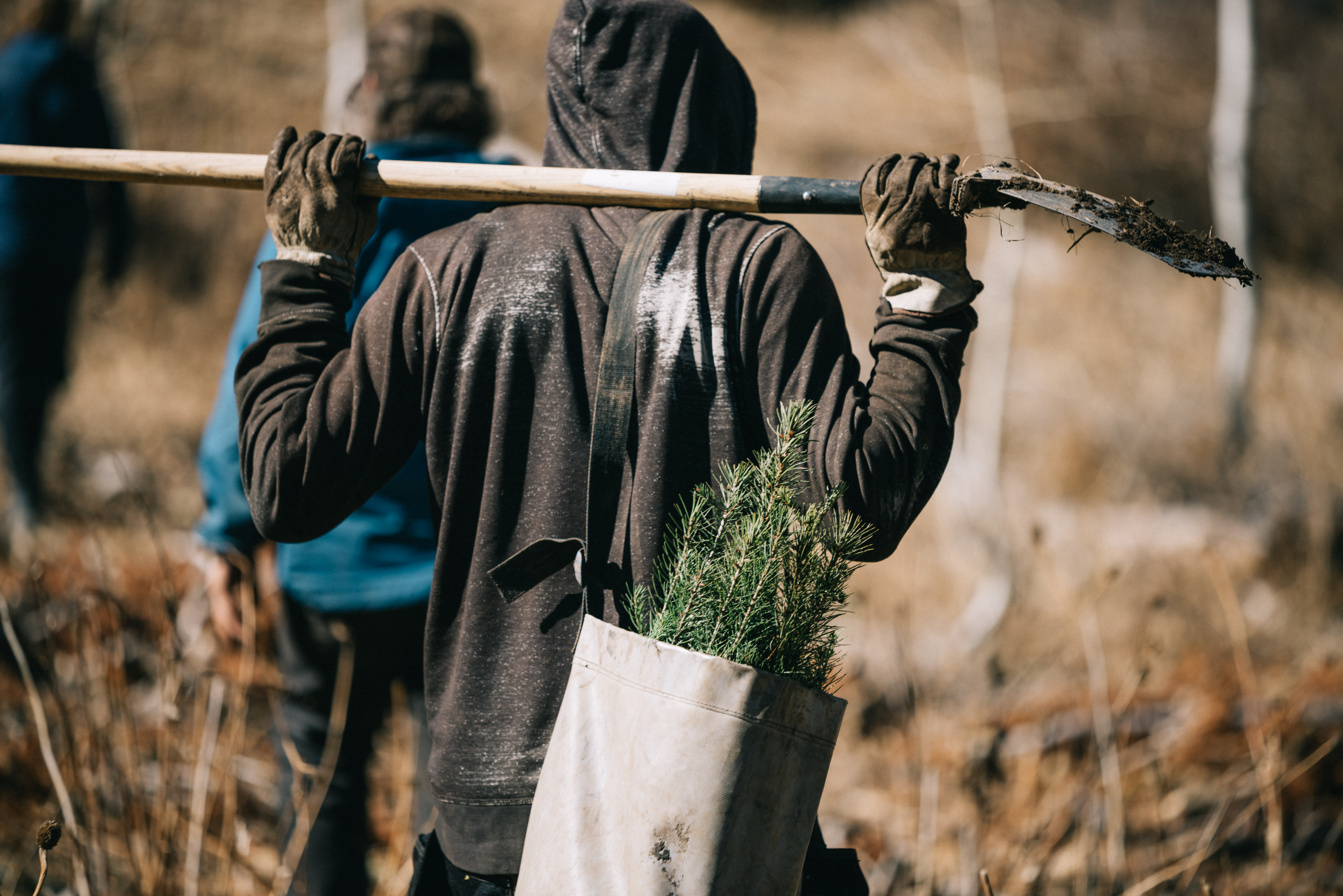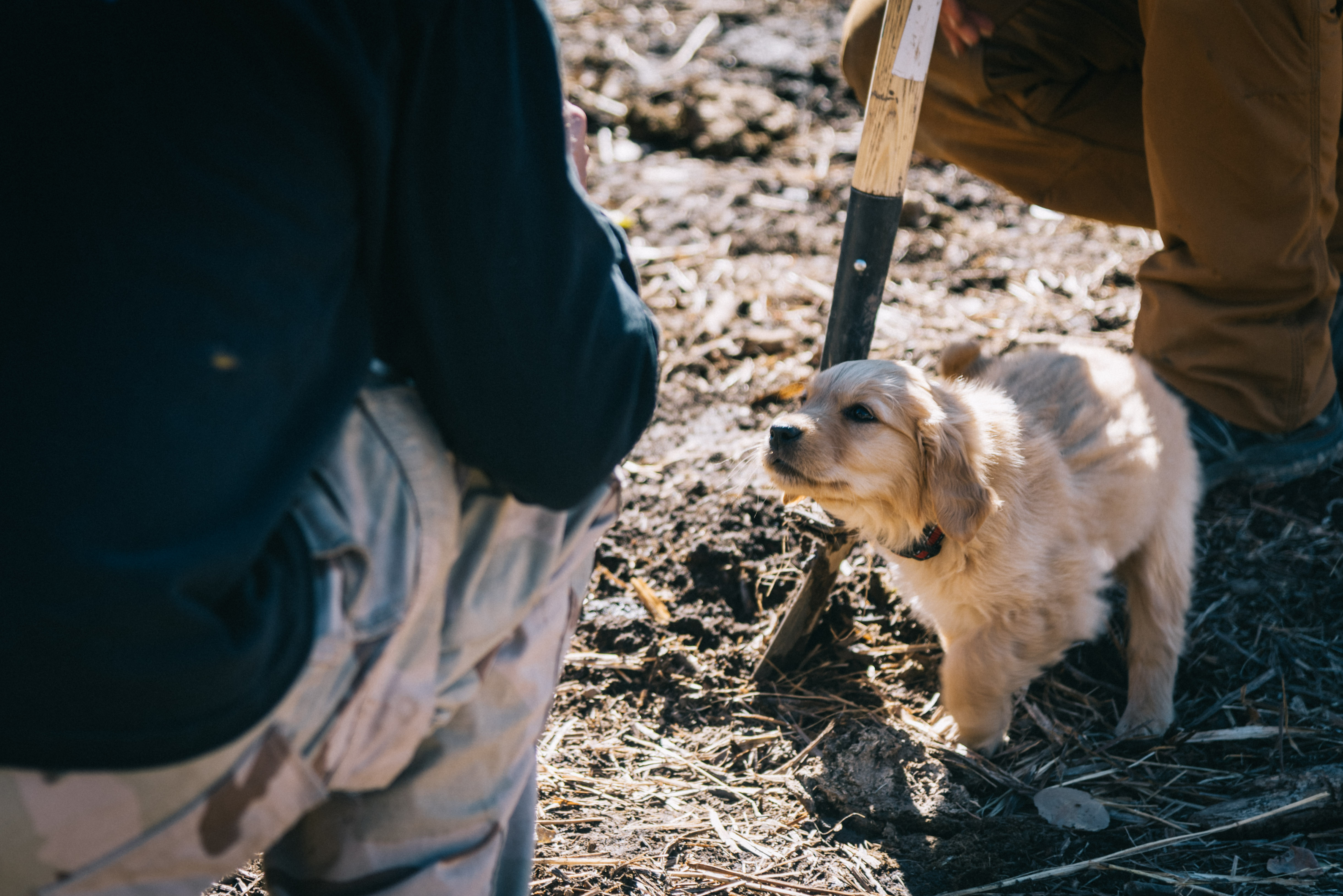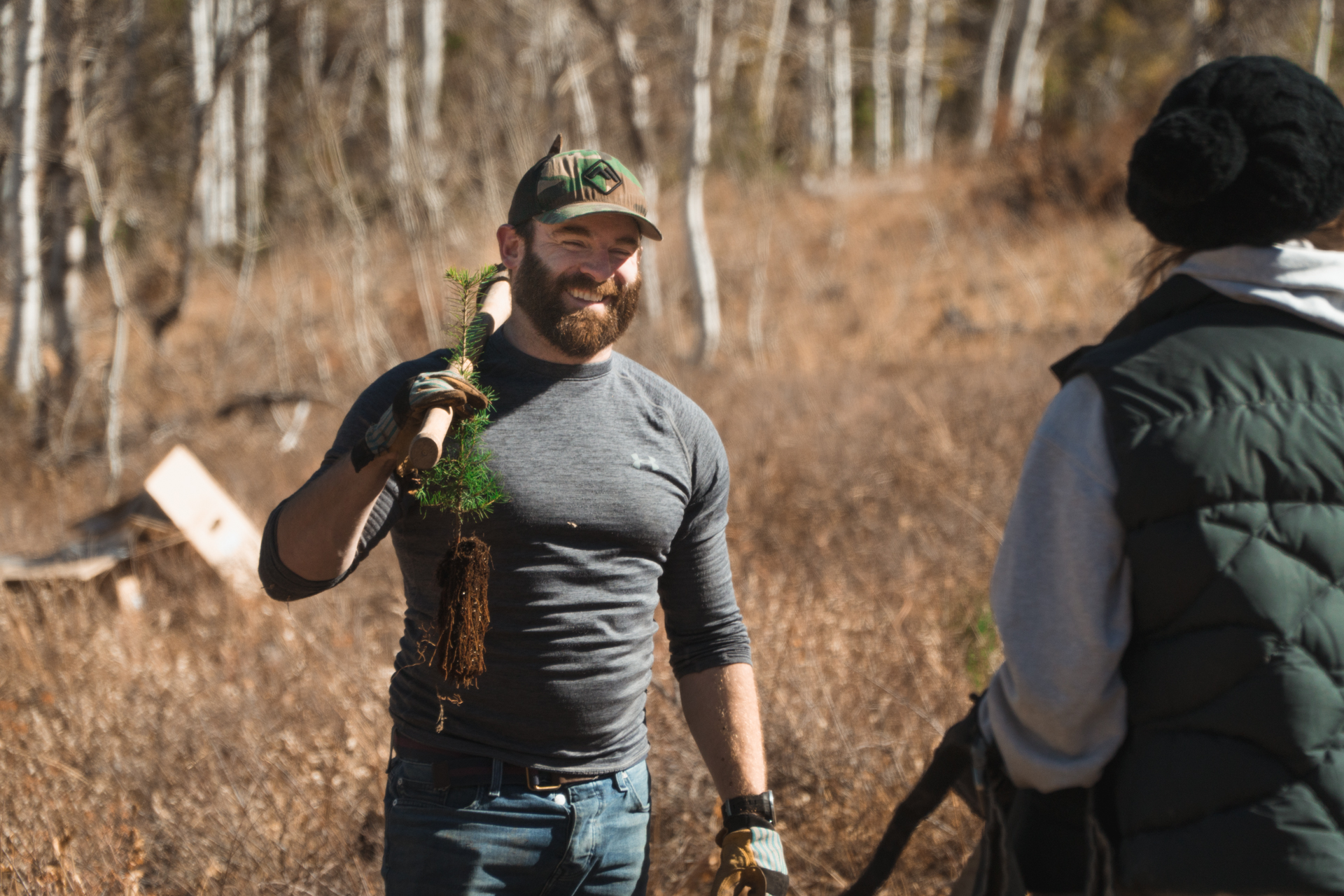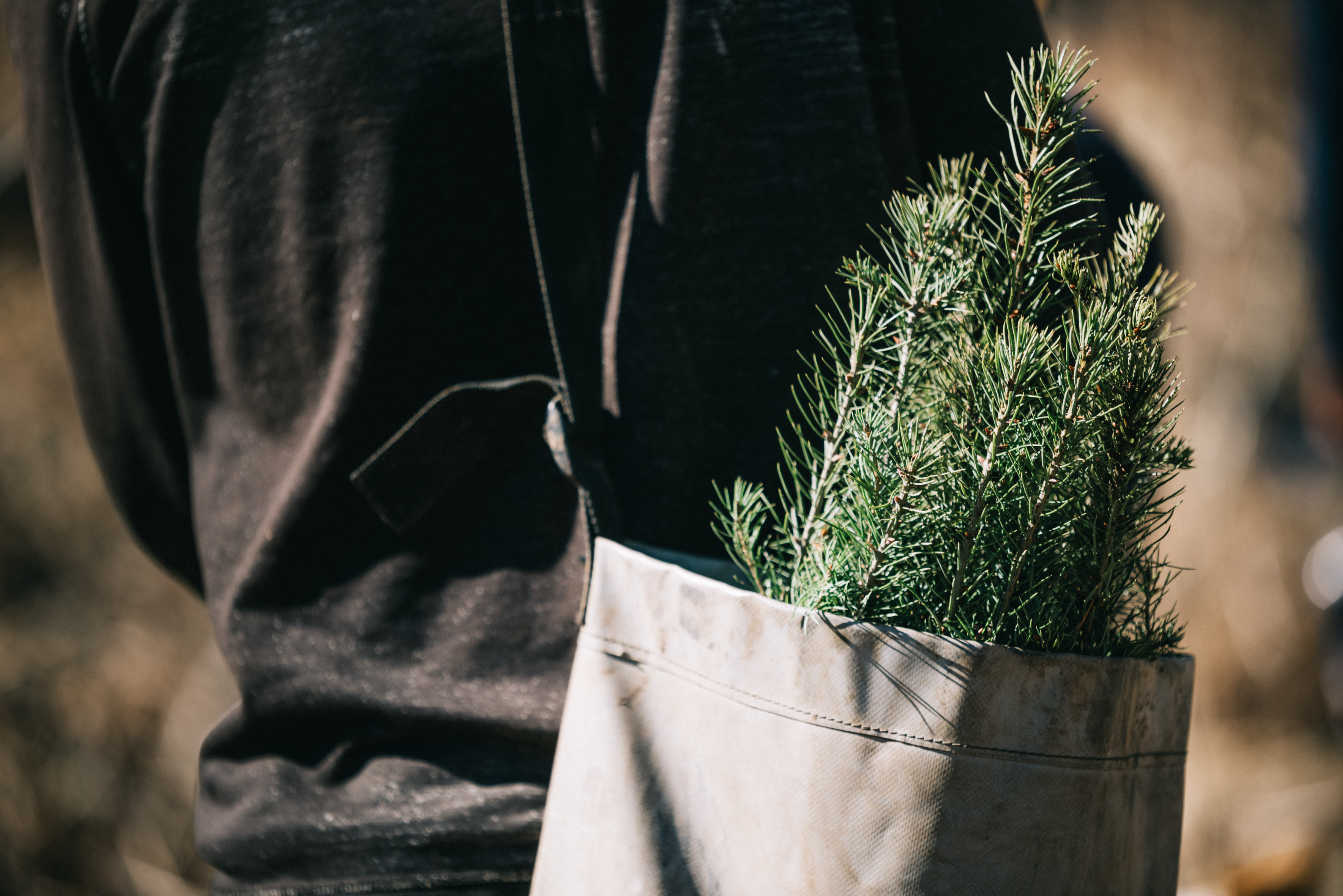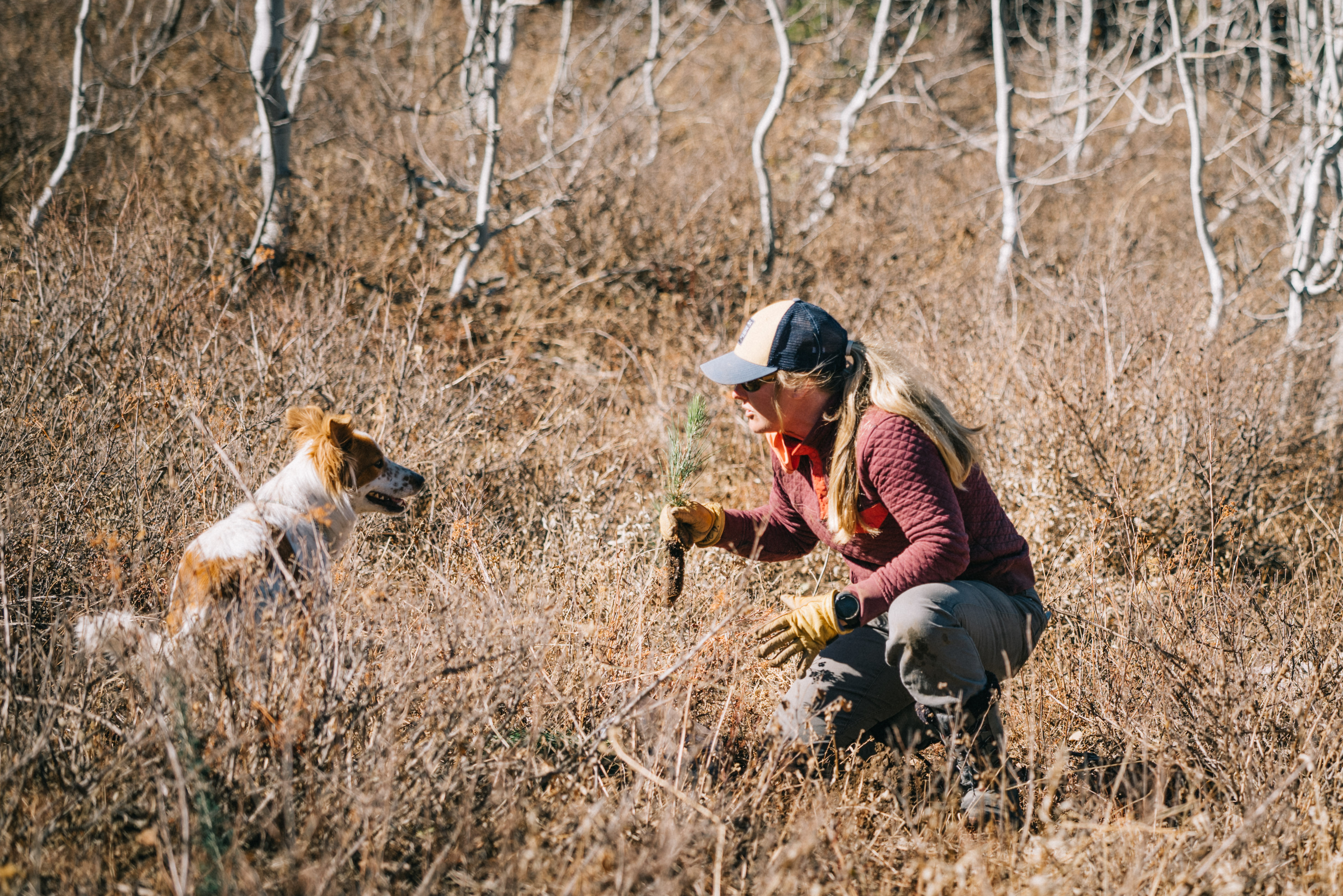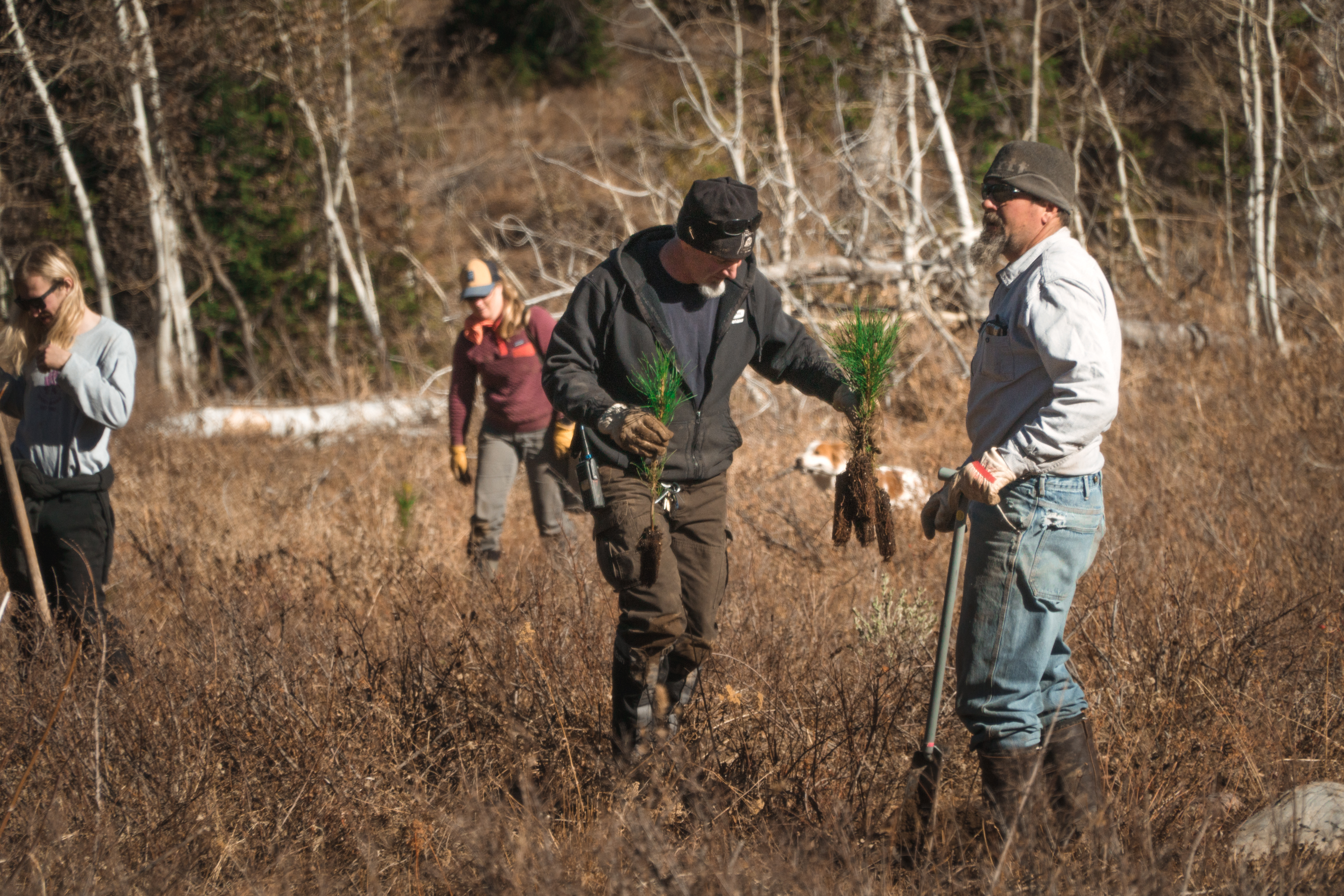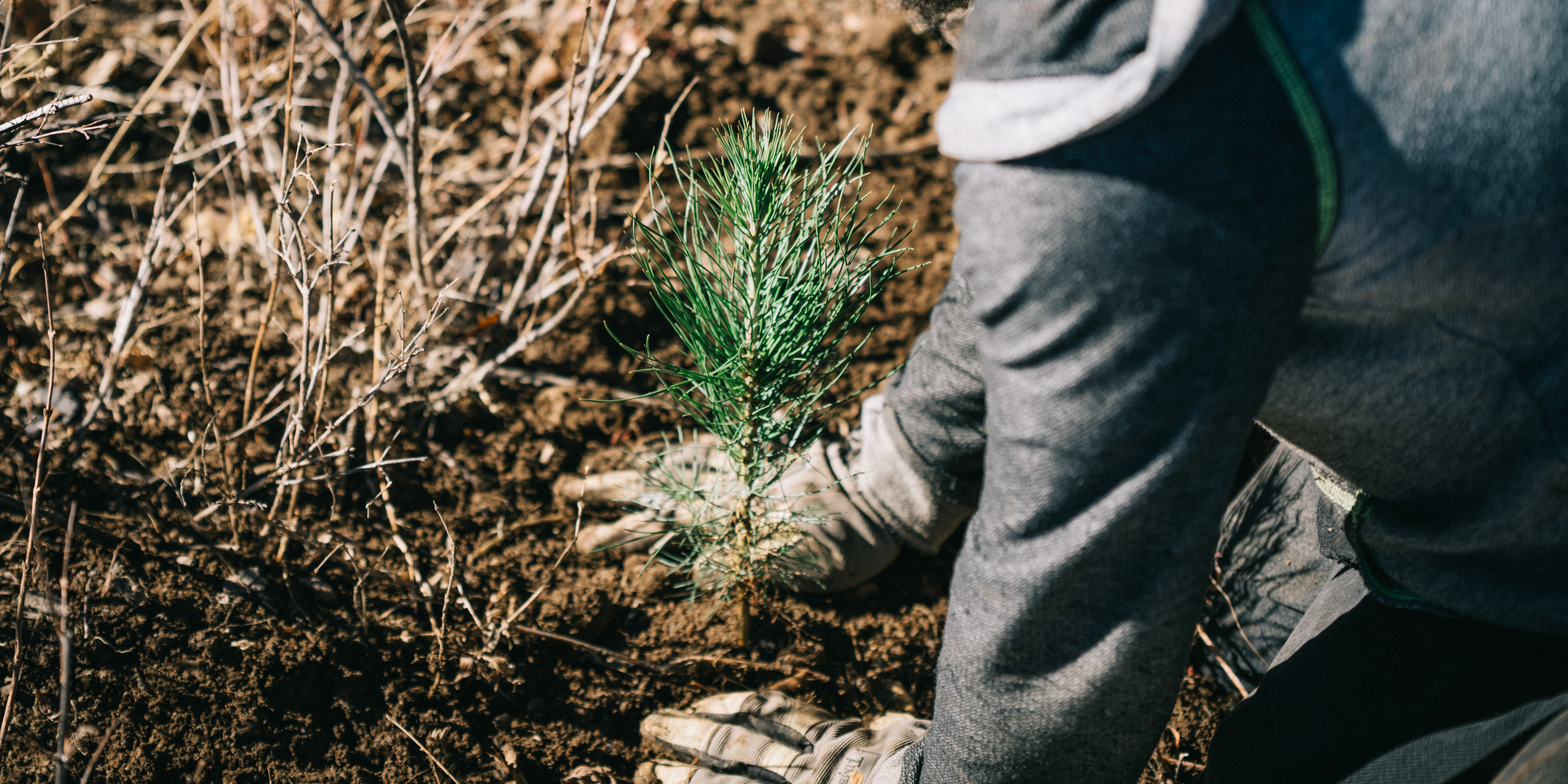
Powder Mountain is a welcoming mountain resort community, and one unlike any other. However, something living in many of the trees mountain-wide was highly unwelcome: the Balsam Woolly Adelgids.
These pests originated in Europe before making their way to the U.S. in the early 1900s. Spreading across America, they finally reached the forests of the west around 1929. Feeding off of only true fir trees, the Balsam Woolly Adelgids have caused significant damage to forests across the country, including those surrounding Powder Mountain.
Heavily infested trees can die in as little as two to three years. Because of these damaging insects, fir trees are systematically being eliminated from some ecosystems.
And they continue to spread.
The exquisite beauty of the region cannot succumb to these forest-ravaging insects. So, Powder Mountain partnered with the Utah Division of Forestry, Fire and State Lands (FFSL), USDA, Forest Service, Forest Health Protection, and Ogden Field Office (FHP-OFO) on a cooperative study to learn about and manage this invasive insect and its management.
Funding for the study and ensuing forest reparations was granted to FFSL from the USDA Forest Service’s Forest Health Protection Program.
Over the summer, many of the infested subalpine fir trees were removed from around the Rose Bud area, with the help of the Powder Mountain team. Native seeds were collected locally by the Utah Division of Forestry, Fire and State Lands to assist with the repopulation of the surrounding forest. The seedlings were grown at the Montana State Nursery, and are not susceptible to the insect.
On October 17, 2018, the entire Powder Mountain team, plus some generous volunteers, headed to the hills, armed with shovels and the young trees.
“We wanted to help protect our forests from this terrible blight, the overarching objectives of this project and other forest health initiatives at Powder Mountain are embodied in our emerging Forest Stewardship Plan.”
Throughout the area, 3,000 newly planted Balsam Woolly Adelgid-resistant trees replace those damaged by the insect and removed. Caring for these trees, and all other local growth is just one part of Powder Mountain’s commitment to sustainability.
When developing Powder Mountain, the number one focus was to make a minimal environmental impact and preserve the mountain’s ecosystem. In fact, a full-time Ecosystem Specialist with over 40 years of experience was just added to the team to ensure this focus remains at the forefront.
This new specialist, Dr. Jenkins, holds a Bachelor of Science in Biology, Master of Science in Forestry and Ph.D. in Biology, and is a retired Professor of Forest Disturbance Ecology and Management, Wildland Fire Science and Snow and Avalanche Science at Utah State University.
His mission is to move PM’s development in a sustainable and environmentally healthy direction. And the planting of these trees was just a first step.
Powder Mountain sends enormous gratitude to the Utah Division of Forestry, Fire and State Lands, USDA Forest Service’s Forest Health Protection facet, the Montana State Nursery, Ogden Field Office, and entire PM team for their efforts with this critical project and helping to make our community and surroundings healthy and thrive for many years to come.
